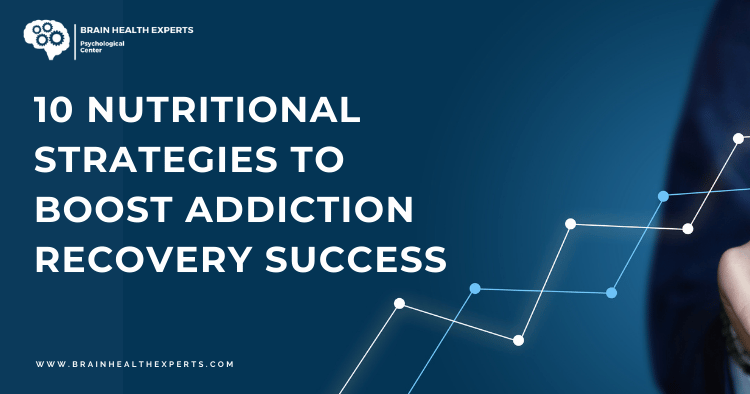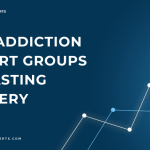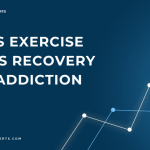Table of Contents
- Understanding the Connection Between Nutrition and Addiction
- 1. Prioritize Whole Foods
- 2. Stay Hydrated
- 3. Incorporate Omega-3 Fatty Acids
- 4. Focus on Protein
- 5. Embrace Fruits and Vegetables
- 6. Limit Sugar and Processed Foods
- 7. Consider Nutritional Supplements
- 8. Mindful Eating Practices
- 9. Meal Planning and Preparation
- 10. Seek Professional Guidance
- Conclusion
Understanding the Connection Between Nutrition and Addiction
Nutrition plays a vital role in addiction recovery, influencing both physical and mental health. Substance abuse can deplete essential nutrients, disrupt metabolic processes, and alter brain chemistry. Proper nutrition can help restore balance, enhance mood, and improve overall well-being. By adopting a nutrient-rich diet, individuals in recovery can support their body’s healing process, increase energy levels, and reduce cravings.
“Nutrition is not just about food; it’s about nurturing the body and mind.”
1. Prioritize Whole Foods
Whole foods—foods that are minimally processed and free from artificial ingredients—should form the cornerstone of a recovery diet. These foods are packed with nutrients that aid in healing and sustaining energy levels. Focus on including:
- Fruits and vegetables: Rich in vitamins, minerals, and antioxidants.
- Whole grains: Provide fiber and essential nutrients.
- Lean proteins: Critical for muscle repair and neurotransmitter production.
Visual Element: Whole Foods vs. Processed Foods Table
| Whole Foods | Processed Foods |
|---|---|
| Fresh fruits | Sugary snacks |
| Vegetables | Fast food |
| Brown rice | White bread |
| Nuts and seeds | Packaged meals |
| Fish and lean meats | Processed meats |
For more insights into the benefits of whole foods, check out the article on 10 Powerful Techniques to Cultivate Positive Mindset.
2. Stay Hydrated
Hydration is often overlooked but is crucial in addiction recovery. Dehydration can lead to fatigue, headaches, and decreased cognitive function. Aim for at least 8-10 glasses of water daily. Incorporate hydrating foods like cucumbers, watermelon, and oranges into your diet. Herbal teas and coconut water are also excellent alternatives.
“Water is the source of life; stay hydrated for a clearer mind and stronger body.”
FAQs: How can I tell if I’m dehydrated?
Signs include dry mouth, fatigue, dizziness, and dark urine. If you experience these symptoms, increase your fluid intake.
3. Incorporate Omega-3 Fatty Acids
Omega-3 fatty acids are known for their brain-boosting properties. They can help improve mood and reduce inflammation. Foods rich in omega-3s include:
- Fatty fish (salmon, mackerel)
- Flaxseeds
- Walnuts
- Chia seeds
Regularly including these foods can support cognitive function and emotional health during recovery. For more information on nutrition’s role in mental wellness, check out 7 Nutrients to Combat Anxiety Naturally.
4. Focus on Protein
Protein is essential for repairing tissues and producing neurotransmitters like serotonin and dopamine, which regulate mood. Aim to include a source of protein in every meal. Good sources of protein include:
- Eggs
- Chicken
- Beans and lentils
- Greek yogurt
Incorporating these foods can help stabilize blood sugar levels and reduce cravings.
“Protein is the building block of recovery; make it a priority in every meal.”
5. Embrace Fruits and Vegetables
Fruits and vegetables are loaded with vitamins and minerals that enhance the body’s healing process. They provide antioxidants that combat oxidative stress and inflammation. Aim for a colorful plate, as different colors often represent different nutrients.
Tip: Try to consume a variety of colors daily to ensure a broad spectrum of nutrients.
For practical exercises to boost mental health, visit 10 Positive Thinking Exercises to Boost Mental Health.
6. Limit Sugar and Processed Foods
High sugar intake can lead to energy crashes and cravings for substances. Processed foods often contain unhealthy fats, sugars, and additives that can negatively impact mood and health. To support recovery, limit:
- Sugary snacks and drinks
- Fast food
- Processed meats
Instead, focus on making your meals from scratch with whole ingredients.
“Cutting out sugar and processed foods is not just a diet; it’s a lifestyle change for recovery.”
FAQs: What are healthy alternatives to sugary snacks? Consider fruits, nuts, yogurt with berries, or dark chocolate in moderation.
7. Consider Nutritional Supplements
While it’s best to get nutrients from whole foods, supplements can help fill gaps, especially in the early stages of recovery. Common supplements to consider include:
- Multivitamins
- Omega-3 supplements
- Vitamin D
Always consult with a healthcare provider before starting any supplementation to ensure it aligns with your recovery needs.
8. Mindful Eating Practices
Practicing mindful eating can improve your relationship with food. This involves paying attention to hunger signals, savoring each bite, and avoiding distractions while eating. Mindful eating can help prevent emotional eating and promote satisfaction with smaller portions.
FAQs: How can I practice mindful eating?
Start by eating without distractions, chewing slowly, and reflecting on the flavors and textures of your food.
“Mindful eating transforms meals into moments of gratitude and awareness.”
9. Meal Planning and Preparation
Planning meals in advance can help you make healthier choices and avoid impulsive eating. Set aside time each week to prepare meals, ensuring that you have nutritious options readily available.
Tips for Meal Planning:
- Create a weekly menu.
- Prepare bulk meals to freeze for later.
- Keep healthy snacks on hand, like cut veggies or homemade protein bars.
For additional tips on overcoming negative thought patterns, refer to 10 Tips to Overcome Negative Thought Patterns Today.
10. Seek Professional Guidance
Finally, it can be incredibly beneficial to seek guidance from a registered dietitian or nutritionist. They can create personalized meal plans and provide ongoing support tailored to your recovery journey.
“Professional guidance can illuminate the path to nutritional healing in recovery.”
Resource: Find a registered dietitian through the Academy of Nutrition and Dietetics.
Conclusion
Nutrition is an essential piece of the addiction recovery puzzle. By incorporating these ten nutritional strategies into your daily routine, you can boost your chances of success and support your body’s healing process. Remember, recovery is a journey, and every small step counts. Embrace the process, nourish your body, and seek help when needed—you’re not alone on this path to wellness.
For more information on nutrition and recovery, visit NIDA and explore their resources. Also, explore 10 Proven Stress Management Techniques for Daily Relief to enhance your mental health during recovery.





